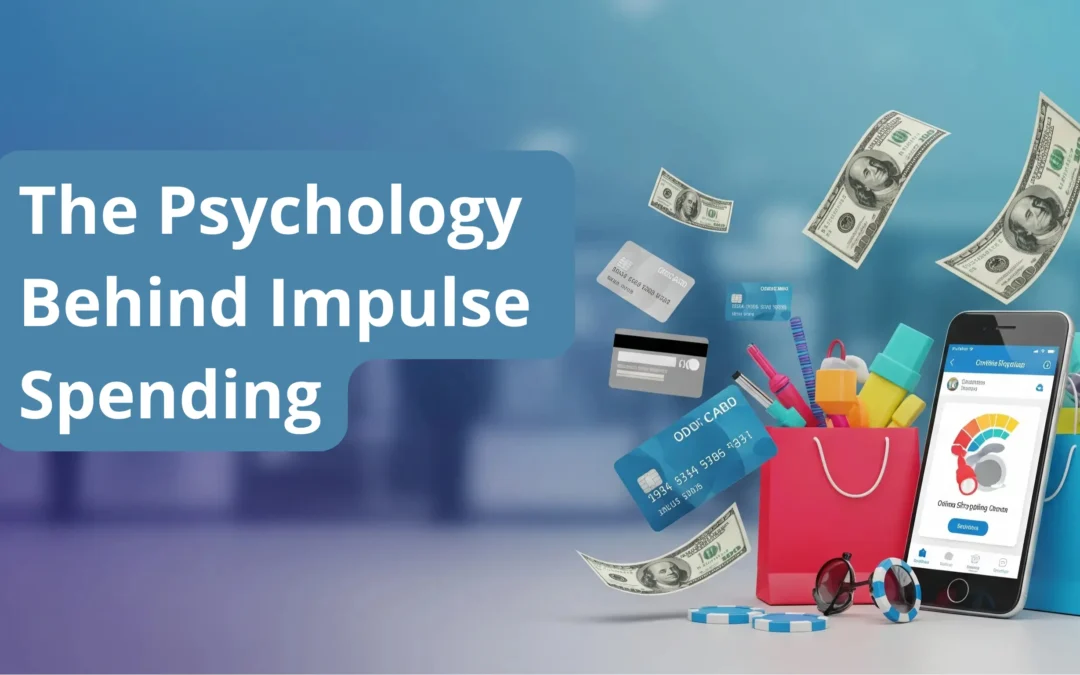Did you ever regret an impulse purchase? Spending more than you had initially planned to can have some psychological reasons behind it. Yes, that’s impulse spending, a usual habit which is guided by emotions and psychological markers rather than real needs.
This article will examine the psychology of impulse buying, its effects on consumers, and ideal ways of handling it.
What is Impulse Spending?
Impulse buying refers to unplanned or spontaneous purchases made without prior intention or careful consideration. It is often driven by sudden urges or desires for items that are not needed at the moment. Typically, impulse buying is emotionally motivated and can be triggered by feelings of boredom, stress, or excitement. People often engage in impulse buying to manage with emotions.
For example, seeing an advertisement on your social networking platform about the shoes you were thinking of, and immediately purchasing them, is a sign of an impulse purchase.
How Psychology Affects Impulse Spending?
Let us see how psychological factors affect impulse spending.
| Trigger Factors | Description | Example |
| Emotional State | People buy to relieve stress, sadness, or anxiety | Shopping after a tough and long workday |
| Instant Satisfaction | Buying gives a quick dopamine (feel-good hormone) hit | Clicking “Buy Now” online |
| FOMO (Fear of Missing Out) | Fear of missing out fuels urgency, leading to an instant urge to buy | Prompts like “Only a few left in stock!” |
| Sales and Discounts | Deals create perceived value and urgency | Flat 50% off. |
| Social Influence | Peer pressure or influencer marketing influences buying behavior | Purchasing trendy clothes that you may not need |
Who’s More Likely to Spend Impulsively?
Different demographics are influenced by different psychological factors. The table below shows the buying habits of different age groups.
| Demographic | Behavior Traits |
| Millennials (25–40) | The highest rate of impulse purchases, often driven by tech deals, emotional validation, etc. |
| Gen Z (18–24) | Driven by social media trends and influencers, and the fear of missing out. |
| Higher-income individuals | Likely to spend on luxury goods without planning. |
| Gender | Buying behaviour is also influenced by gender. |
Impact of Some Factors on Impulse Buying
- Online shopping portals: Target marketing reaches consumers by targeting them based on their past browsing and buying behaviour, making the product seem more relevant and appealing. One-click checkouts that make shopping easy enable customers to shop conveniently and speedily.
- Retail Store Design and Store Layout: Retail stores are particularly designed to influence consumer behaviour unconsciously and push impulse buying. Placement of products is important; essentials such as milk and bread are typically placed at the back of the store, so customers need to walk past a couple of other products.
- Appealing products at checkout counters: To encourage impulse purchasing as customers wait in line, checkout counters are strategically stocked with cheap, small-sized products such as candies, snacks, or accessories.
How to Control Impulse Spending: Practical Tips
After realising what factors affect impulsive spending, you might want to know how to control it. Here are some tips to assist you.
- Establish a 24-Hour Rule: Before purchasing non-essential items, wait a full day. It will give you enough time to think about the decision thoroughly and identify if you actually need it or if it is an impulse spending. This promotes logical decision-making and decreases emotional purchasing.
- Establish a Treats Budget: Set aside a certain amount each month for “fun” expenses. This will give you a limit up to which you are allowed to spend on treats and unnecessary groceries. Ultimately, it will reduce impulse spending.
- Steer clear of shopping when feeling upset: Avoid using shopping as a form of therapy. Instead, take care of yourself by working out, writing in a journal, or meditating. Shopping as a means of therapy may later take a toll on your financial health, ultimately leading to more stress.
- Unsubscribe from Email Marketing: Unsubscribe from emails that influence your purchasing decisions. These emails are designed to constantly remind the customer about the products they may be interested in buying. Getting these notifications may influence you to impulse buying.
- Pay with Cash Rather Than Credit Cards: A psychological barrier against overspending is created when you physically witness money leaving your wallet. Even if you are not aware of it, online shopping can deceive you into spending more money.
Bottomline
Impulse spending is a psychological habit influenced by emotions, marketing strategies, and brain chemistry. It goes beyond a lack of self-control as it tricks people into buying something without them actually realising it. People can regain control and make more thoughtful financial decisions by comprehending the underlying causes and putting smart money habits into practice.
Written by: Tanya Kumari


